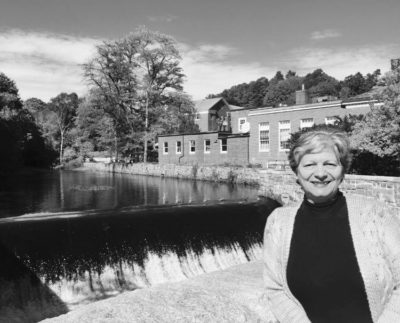
Translated from the Albanian by Ani Gjika
We continue our celebration of Women in Translation Month this week. Katherine E. Young, Poet Laureate Emerita of Arlington, Virginia writes:
August is Women in Translation Month, an international event held every August since 2014. Why? Here in the U.S., fewer than 800 books in translation (that number covers all literary genres!) are published in any given year. Of those 800 books, fewer than one third are works written by women. Clearly, we are not hearing enough women’s voices from around the world – not even from those languages where their work is originally published as frequently as the work of men.
Women in Translation Month is the brainchild of Meytal Radzinski, an Israeli scientist and book lover who noticed how few women she was reading in translation. Radzinski had two goals in mind when she founded the event: to increase dialogue and discussion about women writers in translation, and to encourage people to read more books by women in translation. Her advocacy has been eagerly seconded by booksellers, literary programmers (including the Café Muse reading series here in the DC area), and online supporters. If you enjoy these poems, I urge you to support women authors, their translators, their publishers, and the booksellers who carry their work: go buy a book (or two!) by a woman in translation!
Lice Season
It’s the season when lice race up the oak bark
at dizzying speeds
all the way to the top where birds worship the skies.
It’s the season where everywhere their presence stuns.
The ambition to be first,
no, to be the best.
It’s the season that doesn’t resemble the promised season of change
but a whole different one, of deception.
When freedom is trampled on.
Like an iron curtain an impossibility hangs,
the impossibility to wipe out nits before they hatch.
A river in Canada
recently turned green.
Not a result of the reflection of the trees
but of transformation.
Lice, too, are transforming,
self-proclaiming that they resemble birds,
seeking wings, threatening to cover the sun.
What a season!
And now they’ve heard of a St. Valentine roaming the world
who keeps love stable.
Lice want to serenade a love song
as they run over undying freedom.
First published in Taos Journal of International Poetry and Art, Issue 9, 2017
Stinë Morrash
Eshtë stina, kur morrat u ngjiten pemëve
Me shpejtësi maramendëse,
deri në majë, atje ku zogjtë i luten qiellit.
Eshtë stina, ku të cudit prania e tyre kudo.
Ambicia për të qënë të pare,
Jo, më të mirë.
Eshtë stina, që nuk i ngjan stinës për ndryshim,
Por një stine të re për mashtrim.
Ku liria meret nëpër këmbë.
Si perde hekuri varet një pamundësi,
Pamundësi për t’i zhdukur parazitët nga rrënjët.
Ujrat e një lumi në Kanada,
U kthyen në ngjyrë jeshile
Këtë nuk e ndryshuan reflekset e pyjeve
Por tjetërsimi.
Morrat po tjetërsohen gjithashtu,
po vetshpallen se u ngjajnë zogjve,
Po kërkojnë krahë, dritën të zënë rezikojnë.
Oh c’fare stine!
Ku liria meret nëpër këmbë morrash.
Kanë dëgjuar morrat se nëpër botë endet një Shën Valentin
Që dashurinë e mban të patjetërsuar
Morrat duan të këndojnë serenatën e dashurisë
Duke marë nëpër këmbë të shkelur lirinë e amëshuar.
What Cannot Change
I try to write
but erase more
and further ache.
We lost one another.
Relatives became strangers,
with strangers we’ve come so close.
I search for someone
whose face might resemble my mother’s.
Sometimes I find the color of her hair
but not how she’d comb it.
A young woman on the street
tall and slender like my sister
without my sister’s voice.
An elderly man
pensive like my father
but his footsteps make no sound.
I search for what’s mine.
It remains out of reach.
That’s why I write
even though I erase
even though I ache.
Cfarë Nuk Mund Të Jetë Ndryshe
Përpiqem të shkruaj
e më shumë shuaj
e më shumë vuaj.
Era që fryu na ndau.
Tanët u bënë të huaj,
me të huajt rrimë kaq pranë.
Kërkoj dicka të ngjashme
me fytyrën e nënës sime
nganjëherë gjej ngjyrën e flokëve
por jo krehjen e saj.
Një vajzë në rrugë,
është elegante si motra ime
por nuk ka zërin e saj.
Një burrë i moshuar
i menduar si babai im
por nuk ka zhurmën e hapit të tij.
Kërkoj timen.
Ka mbetur larg.
Ndaj shkruaj
dhe pse shuaj
dhe pse vuaj.

Julia Gjika is an Albanian poet and essayist living and writing in the United States since 1996. She belongs to the first generation of Albanian women poets, having published her first book Ditëlindje (Birthday) in 1971, followed by Ku Gjej Poezinë (Where I Find Poetry) in 1978. Gjika is the author of three other collections of poetry characterized by intensely moving and deft writing about the immigrant experience. Her work is widely published in Albanian magazines, has been translated into Polish, and has appeared in English in Two Lines Online, Gobshite Quarterly, 236 Magazine, Taos Journal of International Poetry and Art and elsewhere.

Ani Gjika is an Albanian-born poet, literary translator, and author of Bread on Running Waters (2013). She is the recipient of a Robert Pinsky Global fellowship, English PEN Award, and an NEA translation grant. Her translation of Albanian poet Luljeta Lleshanaku’s Negative Space (New Directions, 2018) was shortlisted for the 2019 International Griffin Poetry Prize.
Image: CC BY-SA 3.0, https://commons.wikimedia.org/w/index.php?curid=170481